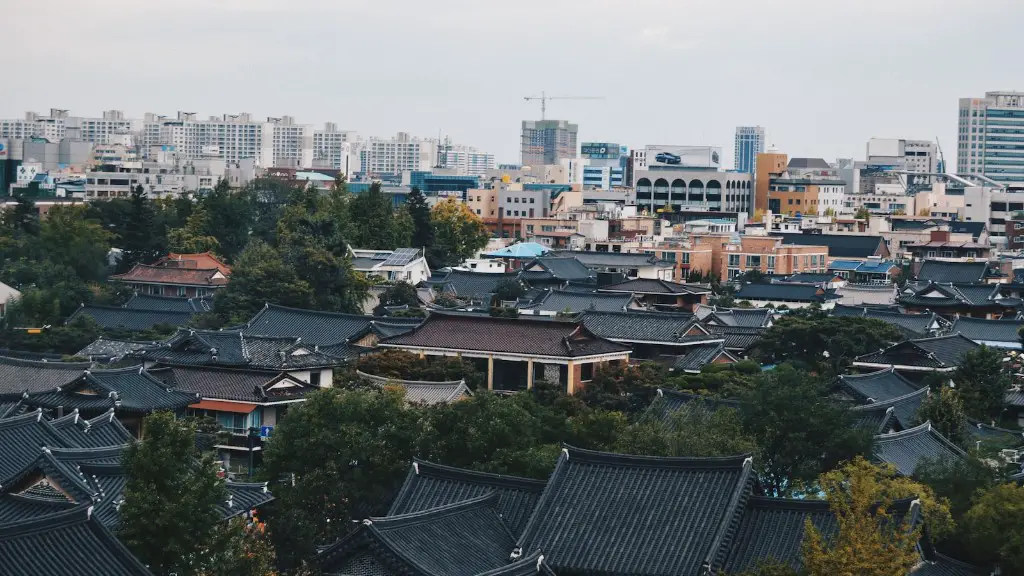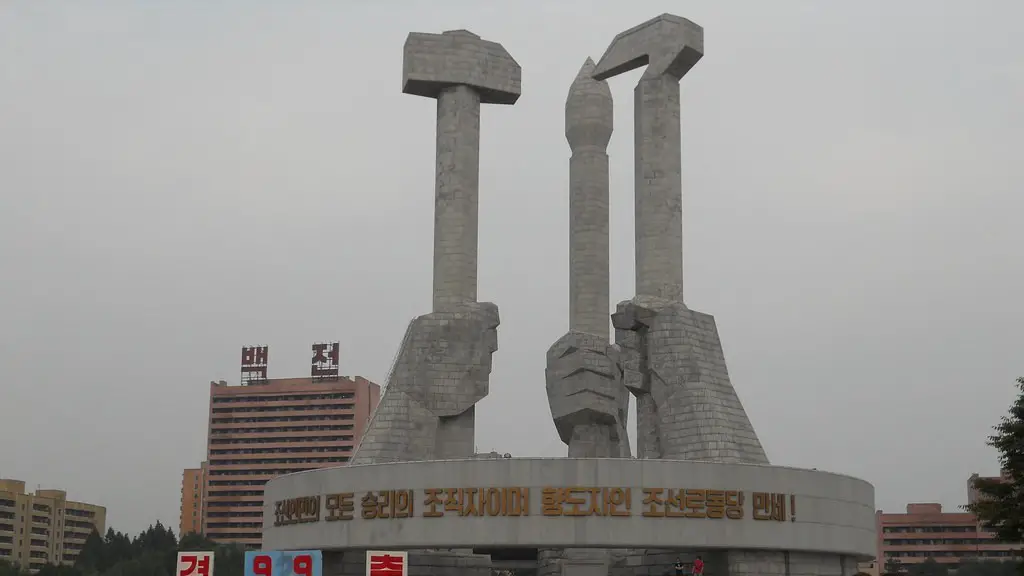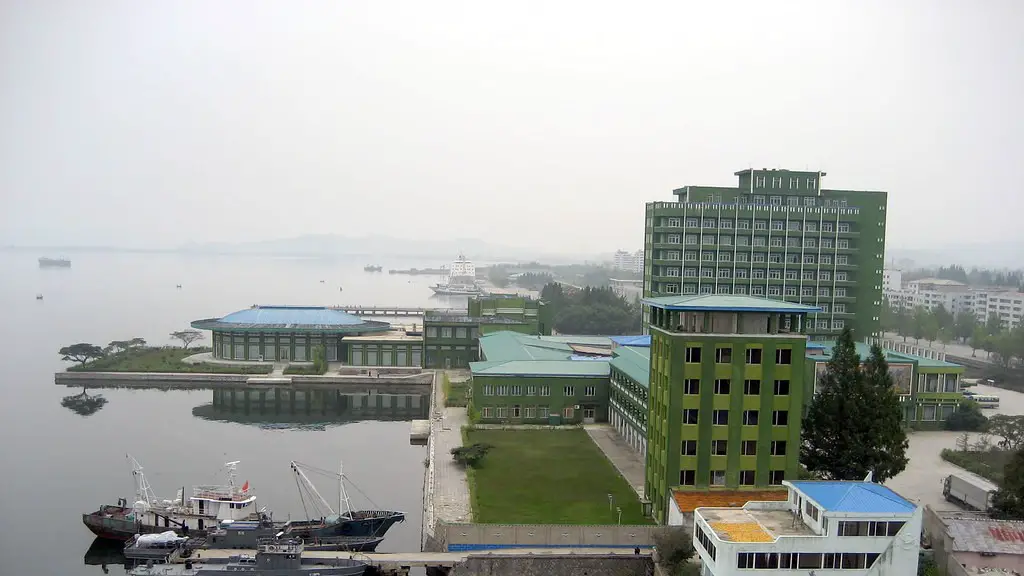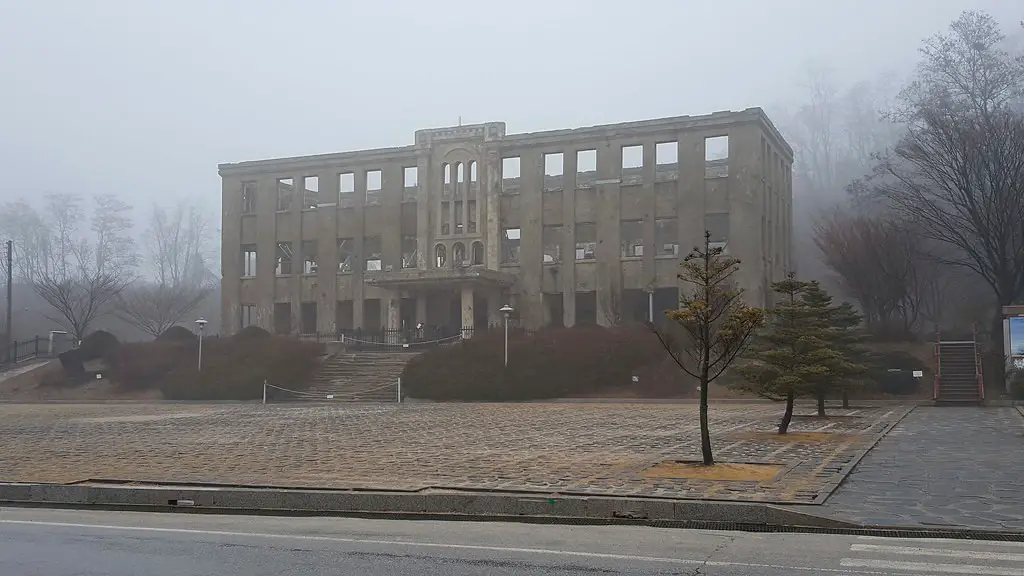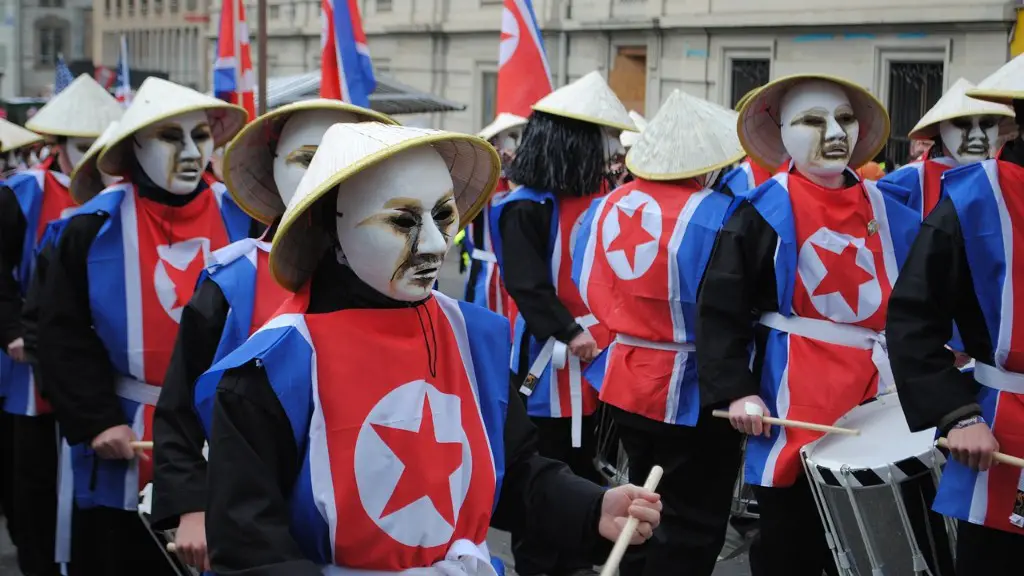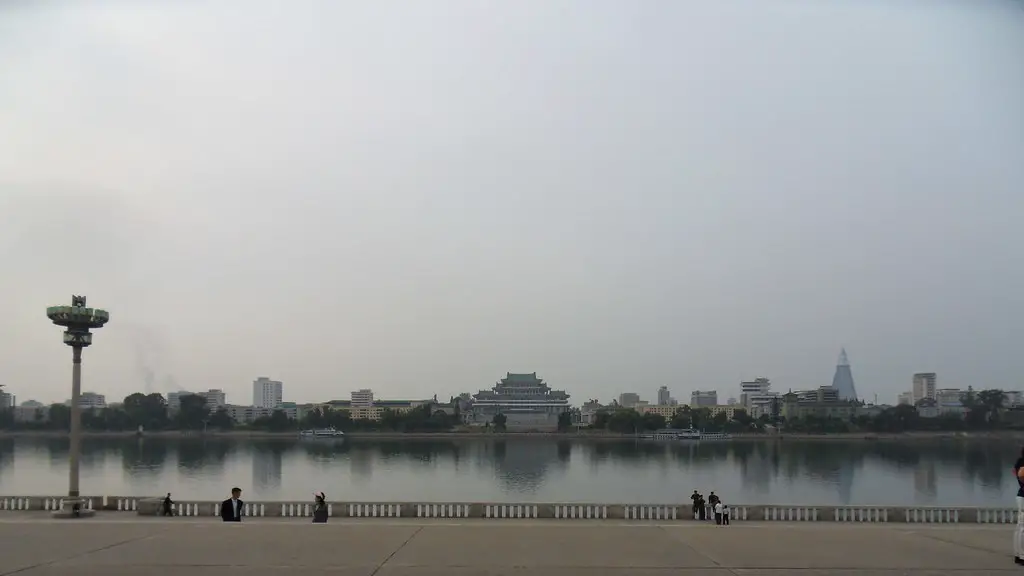North Korea, officially the Democratic People’s Republic of Korea, is one of the most politically and militarily isolated nations in the world. The country is also one of the few remaining communist states in the world today. With its isolation and unpredictability, few countries can match North Korea in terms of sheer power, which is why its tactics of military and political pressure often pose a threat to nearby countries and even to countries halfway around the world.
North Korea’s nuclear capability is one of its main political and military talking points. North Korea has repeatedly tested its nuclear weapons over the years, in spite of sanctions from the United Nations Security Council. In 2018, North Korea tested an intercontinental ballistic missile capable of targeting mainland USA, as well as multiple other countries. Also, in 2020, North Korea recently succeeded in reviving its nuclear power plant Yongbyon, which had been shut down for six years. It is believed that this will allow North Korea to produce more powerful nuclear bombs.
The North Korean military is also one of the most powerful in the world. North Korea has the fourth largest armed forces in the world by its number of active servicemen, with 1.2 million personnel. This places it only after USA, Russia and China. In terms of conventional ground-based military forces, it is considered to have the largest of any Asian country. The country also has a huge arsenal of artillery, tanks and combat aircraft, making it capable of launching a devastating attack if it were ever to choose to do so.
North Koreans are very aware of the power they wield and it is believed that the government uses this power to maintain the status quo. Through the propaganda and media control exercised by the government, it is able to instill loyalty and, more importantly, fear in its citizens. This means that citizens of North Korea are very unlikely to take any action against the government, and many are actively supportive of it.
The military and political strength of North Korea is very worrying for many of its neighbouring countries, such as South Korea and Japan, which are virtually defenceless when compared to North Korea. South Korea and Japan have both expressed concern about North Korea’s military power, and the US and other countries have stepped up their presence in the region to try and deter North Korea from taking any aggressive action.
Despite its isolation and unpredictability, North Korea is still able to project its influence in the region. In the past, North Korea has used its nuclear capability to blackmail other countries into giving it economic aid and concessions. It has also used its military power to threaten neighbouring countries and to pressure them into taking its side in conflicts. As such, it is clear that North Korea is still a very powerful nation, even though it may be isolated and unpredictable.
North Korea’s Economy
North Korea is largely dependent on foreign aid and has one of the most centrally planned economies in the world. This relies heavily on imports from China and other countries, as North Korea does not have enough resources to sustain itself on its own. As a result, North Korea is extremely vulnerable to economic sanctions, and the US, EU and others have used this to their advantage in the past to put pressure on the country. This means that North Korea’s economy is largely subject to outside forces.
The North Korean government also relies on its citizens to pay taxes, which help to prop up the economy and the government itself. The citizens are expected to pay taxes even when there are economic sanctions and the money earned often goes to the military or the ruling party. This means that North Korea is able to maintain control through fear and loyalty, and this has been a major factor in its ability to remain a powerful nation.
Despite the fact that North Korea is heavily dependent on outside sources, it has still been able to maintain some elements of economic growth in recent years. This is largely thanks to its ability to utilise foreign aid and the development of the country’s special economic zones. North Korea has also taken steps to liberalise its economy, opening up to foreign investment and trading, offering deals to potential investors. This is all positive news for North Korea and its citizens.
North Korea’s Tactics
The government in North Korea relies heavily on military and political pressure as a means of keeping its population submissive and ensuring that it can remain in power. North Korea has also been able to leverage its military and nuclear strength to threaten its neighbours and ensure that other countries take its side in conflicts. This tactic has been successful in the past, but it is also a risky one and the international community often views North Korea as an aggressor, rather than a nation that can be trusted.
North Korea also relies heavily on xenophobia, which has been encouraged by the government for many years. As a result, North Koreans are taught to be wary of outsiders and to have a distrust of foreign entities. This has helped to further isolate North Korea from the rest of the world and has made it more difficult for the country to form meaningful relationships with other nations.
North Korea is also very good at propaganda and uses its state-controlled media to manipulate public opinion. This includes manipulating news stories, spreading misinformation and exaggerating the strength of the country’s military. This is all used to make North Koreans feel secure and to make them less likely to challenge the government or to risk rebellion.
Finally, North Korea also uses cyber attacks to further its own agenda. The government has been known to use hacking to try and disrupt rival countries’ infrastructure and take control of their networks and data. This is a very dangerous tactic, as it could be seen as an act of cyber warfare and could escalate into a full-blown conflict.
North Korea’s Relationships with Foreign Countries
North Korea’s relationships with foreign countries are often strained and it is not unusual for the country to be viewed as an aggressor. This is largely due to North Korea’s use of military pressure and cyber attacks, which have earned the country a reputation for being difficult to negotiate with. This is compounded by the fact that North Korea’s stance on many international issues is seen as overly aggressive and uncompromising.
Despite this, North Korea has had some successes in terms of its foreign relationships. In recent years, the country has made some tentative steps towards improving ties with neighbours South Korea and Japan, as well as with the USA. The recent meetings between President Trump and North Korean leader Kim Jong Un has resulted in a thawing of longstanding tensions, and has given hope to the possibility of further peace talks in the future.
North Korea has also been willing to engage in international organizations such as the United Nations and the Non-Aligned Movement. Its participation in the United Nations has been a vital part of its foreign relations, as it allows North Korea to have a voice on the international stage and to show to the rest of the world that it is willing to cooperate. This has been an important step for North Korea in gaining recognition from other countries and in building bridges.
Overall, North Korea is still viewed as a powerful nation. It has a strong military and a government that is able to control its population through a combination of military pressure, propaganda and isolation. North Korea is also still capable of using its power to threaten and manipulate other nations, although it has shown some willingness to engage in peaceful negotiations. This means that North Korea is still a force to be reckoned with, even if it is often viewed with suspicion by other countries.
North Korea’s Human Rights Record
North Korea is one of the worst countries in the world when it comes to human rights violations. It has been cited by the United Nations Human Rights Council as having one of the worst human rights records in the world, and its treatment of its citizens has frequently been condemned by international rights organizations. This includes torture, extrajudicial killings, forced labor, harsh prison camps and other abuses.
The North Korean government is also accused of using food as a weapon, with millions of its citizens suffering from malnutrition and starvation due to the state’s policy of rationing food. The government has also been found to be complicit in trafficking and exploiting its own citizens, something which is widely condemned by the international community.
North Korea is also widely criticized for its media censorship, with the government heavily controlling and limiting what its citizens can access and see. This includes access to foreign media, something which is seen as a way for the government to further isolate its citizens and to prevent them from seeing anything that might contradict the views of the ruling regime.
Finally, North Korea has also been accused of attempting to crush any form of dissent or opposition. This includes gathering intelligence on its citizens, imprisoning dissidents and even attempting to kidnap people abroad. This has further angered the international community and has raised questions about the country’s willingness to uphold basic human rights.
Conclusion
It is clear that North Korea is a powerful and isolated nation, with a strong military and a government that is willing to use all of its resources to stay in power. Its nuclear capability and use of military and political pressure have been used to threaten, manipulate and intimidate other countries. Although North Korea has shown some willingness to engage in peaceful negotiations and to open up to outside investment and trading, its human rights record and reliance on propaganda and misinformation has caused it to be viewed with suspicion by much of the international community.
